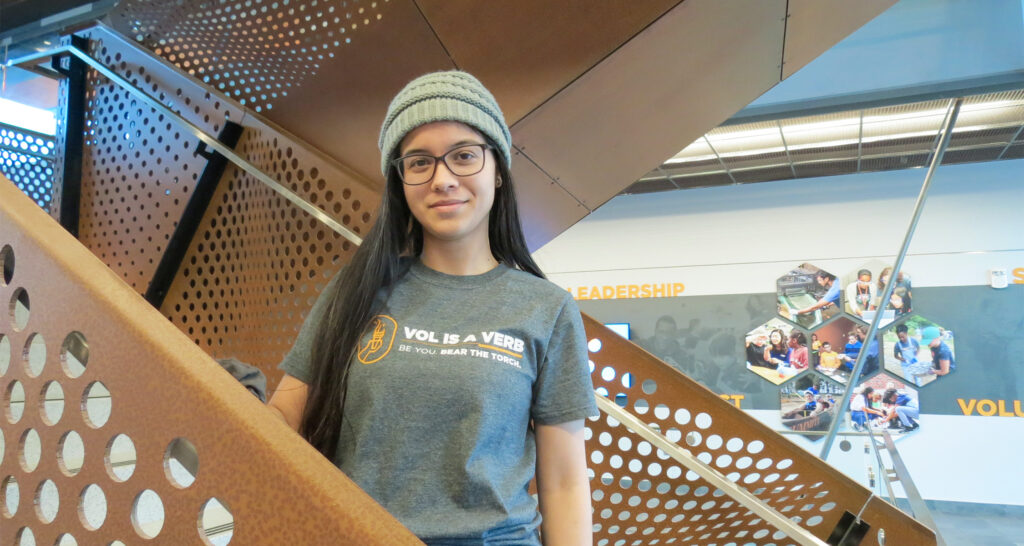Graduate student Alyssa Hayes has been selected to receive the American Nuclear Society’s Glenn T. Seaborg Congressional Science and Engineering Fellowship for the 2026 term.
Hayes is one of just two students in the nation to be named an ANS Fellow for 2026. Each Fellow will receive a stipend of $95,000. The Washington D.C.-based one-year term of the fellowship runs from January to December 2026.
The ANS Congressional Fellow appointment helps the Society fulfill its strategic goal of enhancing public policy.
“I’m honored to have earned this fellowship with ANS, a society that I have dedicated much effort towards over the last decade,” Hayes said. “I’m excited to elevate my involvement in energy, science, and technology policy and build a career in this area.”
About the Fellowship
As an ANS Congressional Fellow, Hayes will be one of nearly 30 scientists and engineers participating annually through the American Association for the Advancement of Science (AAAS) Congressional Science and Engineering Fellowship Program. More than 2,000 have served as Fellows on Capitol Hill since the inception of the AAAS program in 1973. ANS initiated its program in 2000.
ANS Congressional Fellows can directly contribute to the federal policymaking process, working in either the U.S. senator’s or representative’s personal office or with a congressional committee. They are responsible for supplying Congress with their expertise in nuclear science and technology, contributing to the creation of new laws while gaining a deeper understanding of the legislative process.
Hayes’s Research at UT
Hayes’s graduate work at the University of Tennessee, Knoxville (UT) concerns plasma-material interactions in magnetically confined fusion reactors. Currently, she’s been focused on the evolution if impurity transport in the scrape-off layer (SOL) between the main plasma and the material wall.
Hayes’s primary nuclear policy interest is capitalizing on the potential to see legislation that supports the end goals of President Trump’s recent nuclear-related executive orders. She seeks to focus on enabling the ramp up of new nuclear civil assets, expand and encourage the ability to build both large and small non-LWR reactors, and help companies get to market in a way that is more accessible without sacrificing the nation’s safety culture.
Hayes has prior experience in government. At age 14, she interned for Illinois state Sen. Melinda Bush. While conducting undergraduate research in fusion at the University of Illinois, she joined nuclear advocacy nonprofit Generation Atomic and helped lead efforts to save the Quad Cities and Clinton nuclear power plants.
During her doctoral studies at UT, Hayes joined the Nuclear Engineering Student Delegation, a group that formulates a policy statement on nuclear science and technology and meets with key figures in Washington D.C. to discuss the future of the sector. She also continued working with ANS and Generation Atomic to stop the closure of Diablo Canyon, Byron, and Dresden nuclear power plants.
“Alyssa is working towards completing her PhD in a very detailed sub-discipline of plasma material interactions to support nuclear fusion development. But her true passion is associated with advocacy,” NE Department Head Brian Wirth said. “As such, I can think of no better advocate as a nuclear Congressional Fellow than Alyssa, and I am confident that she will be a tremendous representative of TCE and the Vol spirit in Washington DC.”
Contact
Rhiannon Potkey (rpotkey@utk.edu)
